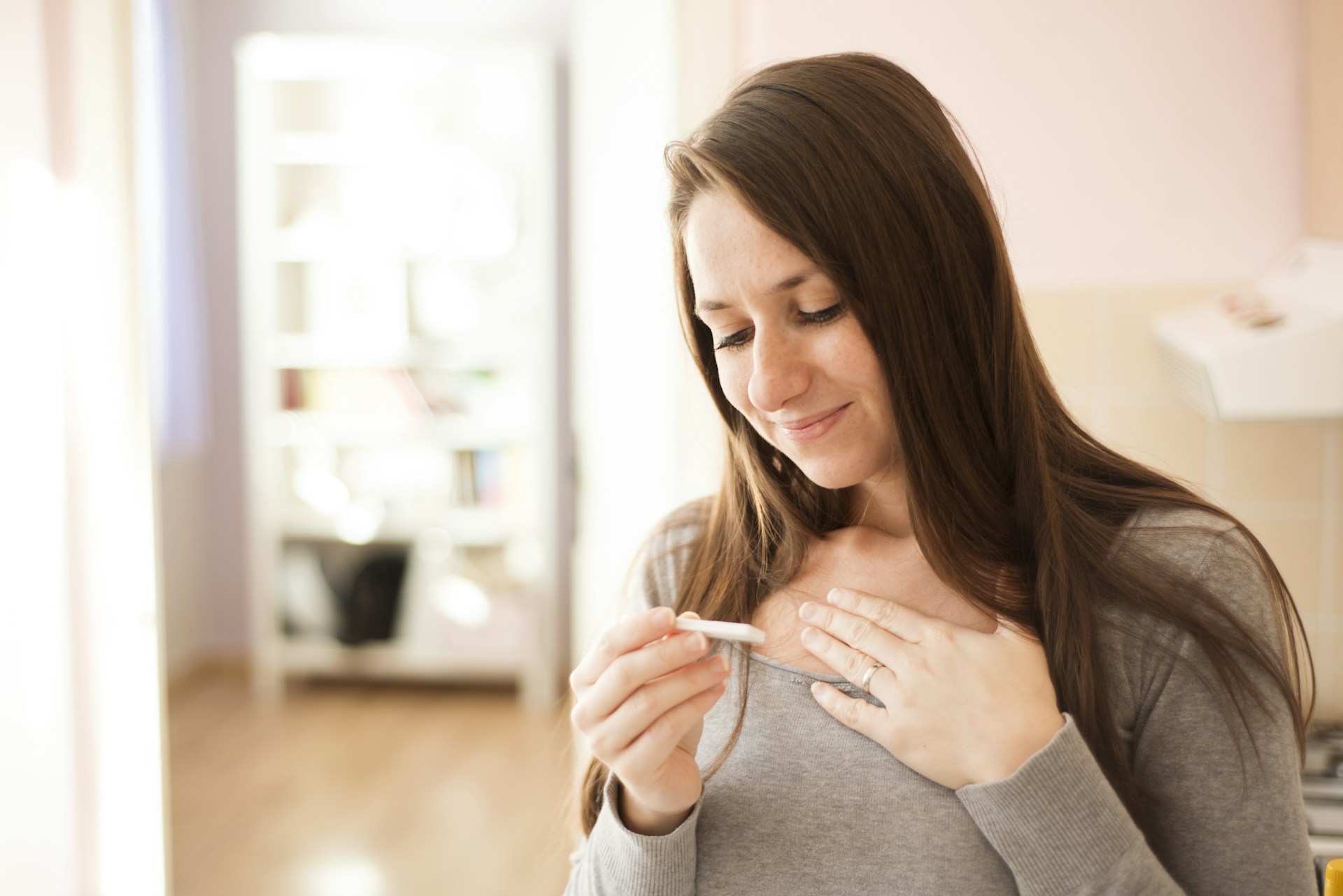Trying to conceive after miscarriage can be an emotionally and physically challenging process. You're not alone—here's what to expect.

Trying to conceive after miscarriage can be an emotionally and physically challenging process. You're not alone—here's what to expect.
Miscarriage is a tragedy. Moving forward after the tragedy of what might have been is very difficult, and becomes even more so when you are still actively trying to have a child. This makes sense; after all, returning to the same process that ended in heartbreak can be triggering for many people.
So, trying to conceive after miscarrying isn’t as simple as just hopping back in the saddle. Rather, it’s a heavy, anxiety-inducing process that can be draining both for your body and for your mind. To help you navigate this journey, here’s what you need to know about chances of conception, signs of ovulation after miscarriage to look out for, and other ways you can support yourself during this period.
Understanding the emotional journey first
As you start this journey, it’s crucial to acknowledge what you’re feeling before you start trying again. If you’ve gone through a miscarriage, you’ve experienced a loss. That loss is not minimized by the fact that you didn’t get to know the child growing inside you; rather, it can be worsened by the fact that you’ll never meet them.
There is no right or wrong way to grieve a miscarriage. In the immediate aftermath, some people feel numb and disconnected from the world, while others feel intensely emotional. Some people report going through all the stages of grief, while for others, acceptance of the circumstances of miscarriage is not as clear-cut a journey.
What is clear is the importance of care in the wake of a miscarriage. Self care, like taking off from work, treating yourself with grace, and doing nice things for yourself can go hand in hand with professional help from mental health providers. Care of various sorts from different sources can help you process your emotions and learn to live with your new normal.
How long after a miscarriage can you conceive again?
On top of your emotional journey of recovery from loss, you’re adding on the stress of trying to conceive again, which means that your body needs to recover, too. So, how long does it take after miscarriage to be physically ready to conceive again?
You can ovulate as quickly as two weeks after you’ve had a miscarriage, and your period typically returns four to eight weeks after. You may experience irregular cycles for a few months following your miscarriage, but it’s still possible to get pregnant during this time.
The American Pregnancy Association reports that 85% of people who have suffered miscarriage are able to have a successful pregnancy on the next try. In fact, some research even suggests that if you’re ready, there’s no physical reason to delay trying again; couples who conceived less than three months after a miscarriage had both quicker times to pregnancy and a higher rate of successful pregnancies.
Symptoms after a miscarriage
After a miscarriage, you’ll likely also experience some lingering symptoms, like:
- Cramping
- Vaginal bleeding
- Sore breasts
- Breasts that leak milk
These symptoms tend to last a few days to about a week after miscarriage. And some of the pregnancy hormones in your system won’t go away until up to two months after your miscarriage.
Medically speaking, it is usually safe for you to conceive again after two to three normal periods — as long as you’re not in treatment for the cause of miscarriage.
Ultimately, you should consult your healthcare provider to ensure that your body is ready to conceive again after miscarriage.
Signs of ovulation after miscarriage
Even though you can ovulate as quickly as two weeks after a miscarriage, ovulation doesn’t always return immediately after a miscarriage. Your menstrual cycle resets when you miscarry; so, if you have a regular period, it will take between four to eight weeks for it to return.
For ovulation to resume, your body needs to release another egg. This occurs when there is a surge of luteinizing hormone (LH) within your system, which triggers egg release. That surge of LH also is accompanied by side effects that you can watch for that indicate you’re ovulating.
Signs of ovulation after miscarriage include:
- Clear skin
- Rise in basal body temperature (BBT) (of about half a degree)
- Clearer, stretchier discharge, similar to egg whites
- Bloating
- Tender nipples
If you want a more reliable way to check in on whether you’re seeing signs of ovulation after miscarriage, check out Oova’s fertility hormone tracker, which measures levels of LH and progesterone in your urine and gives you real-time readings that can help you track your cycle.
Navigating trying again
When you come to the point where you decide you want to try again, make sure you’re paying attention to yourself. You want to be aware of your body, whether that’s because you’re looking for signs of ovulation after miscarriage or recognizing physical manifestations of your emotions. You also want to be conscious of your mind. Acknowledge your fears and anxieties in the face of the uncertainty of trying for another baby. Arm yourself with stress management strategies. Above all else, do not closet yourself with your pain — instead, look for support through loved ones and support groups.
Check out resources offered by March of Dimes, Miscarriage Hope Desk, and MiscarriageHurts to read others’ miscarriage experiences, or discussion forums like Glow in the Woods to contribute to conversations yourself.
There are also several online miscarriage support groups you can look into, some of which cost money and some of which don’t. One popular support group option is offered by Postpartum Support International (PSI) — make sure you look for one of the pregnancy, infant loss and fertility challenges groups to best suit your needs.
About the author

Sources
- American Pregnancy Association. (2022.). Pregnancy after miscarriage.
- Schliep, K. C., Mitchell, E. M., Mumford, S. L., Radin, R. G., Zarek, S. M., Sjaarda, L., & Schisterman, E. F. (2016). Trying to Conceive After an Early Pregnancy Loss: An Assessment on How Long Couples Should Wait.
About the Oova Blog:
Our content is developed with a commitment to high editorial standards and reliability. We prioritize referencing reputable sources and sharing where our insights come from. The Oova Blog is intended for informational purposes only and is never a substitute for professional medical advice. Always consult a healthcare provider before making any health decisions.



